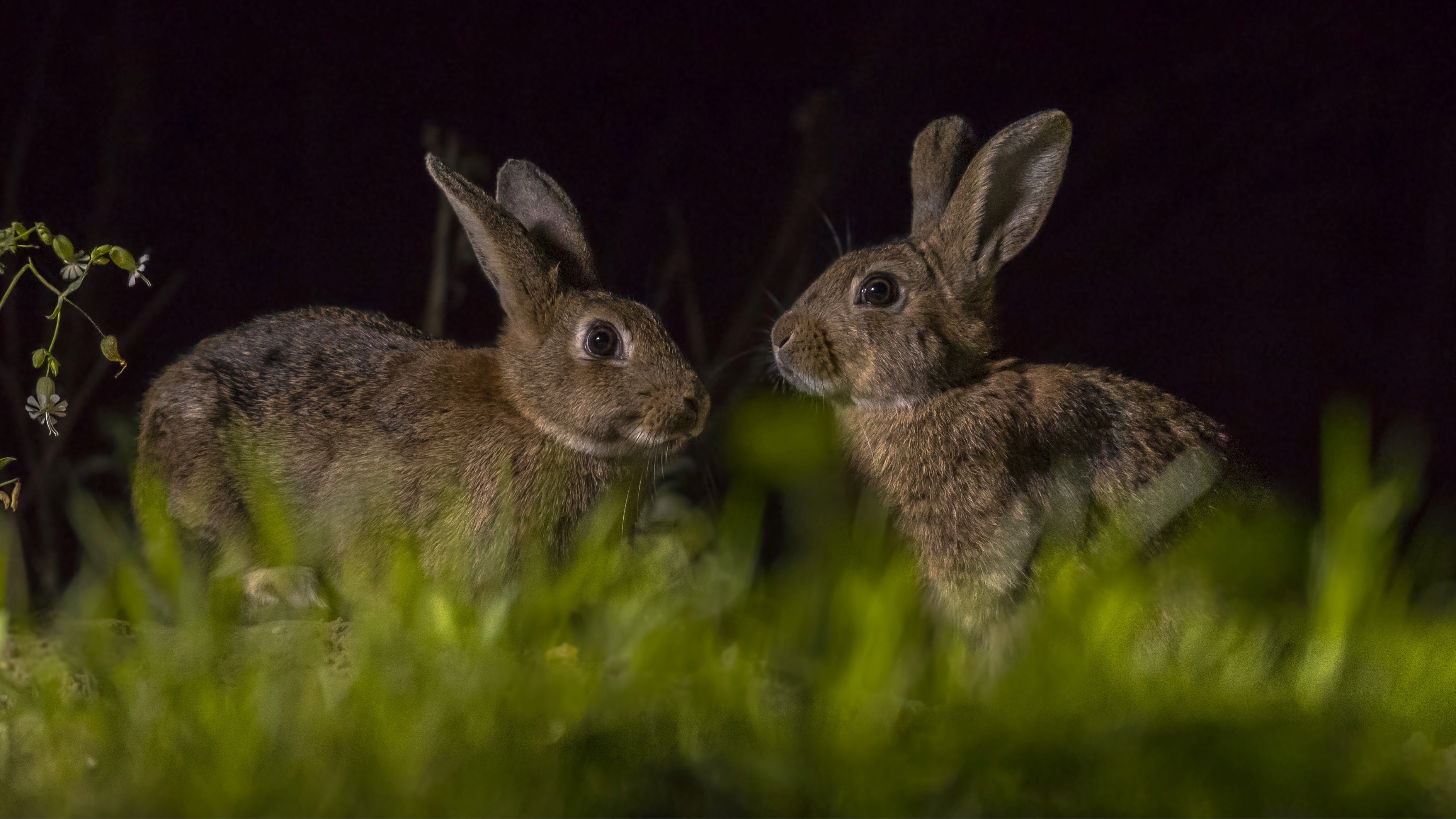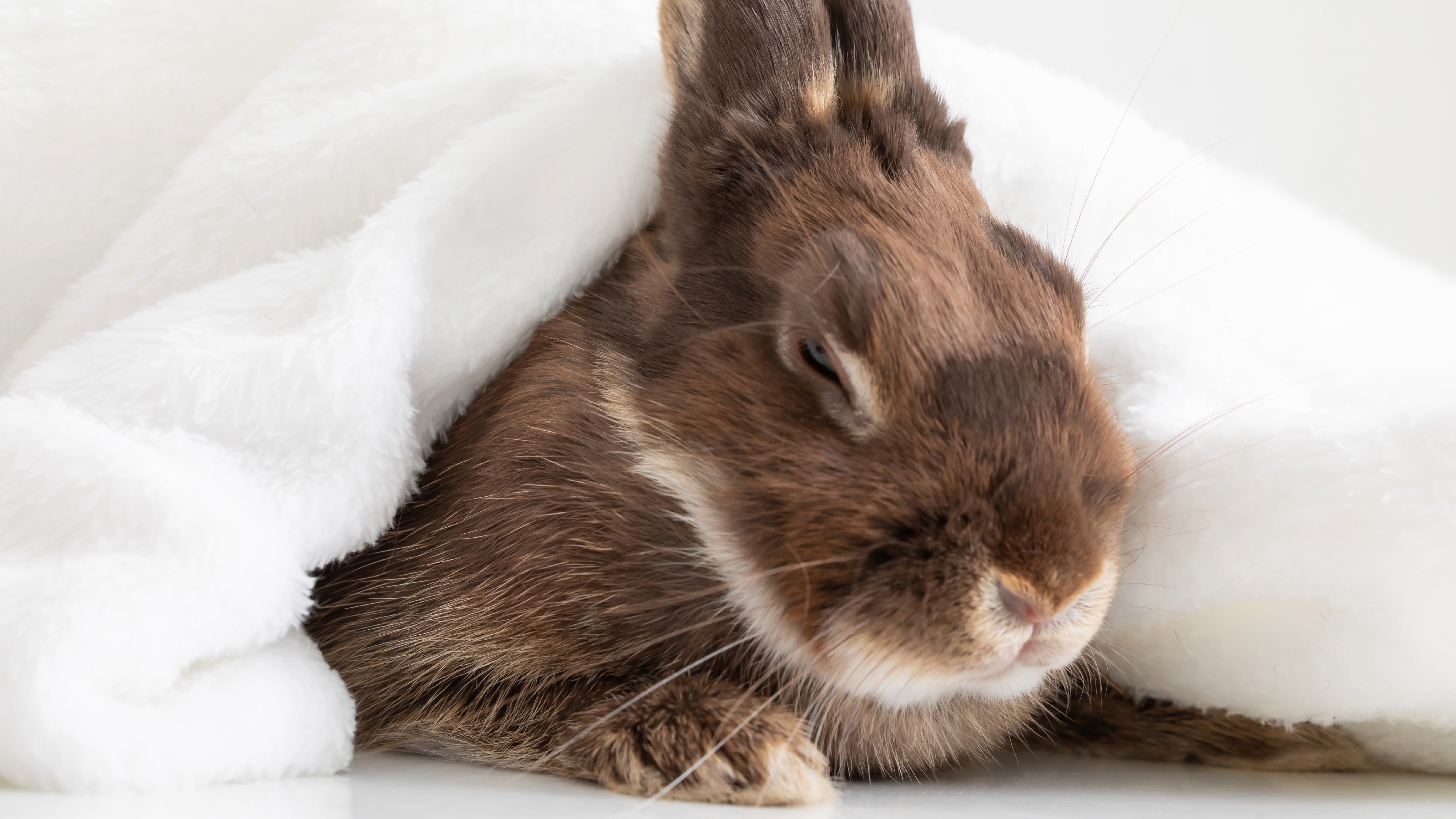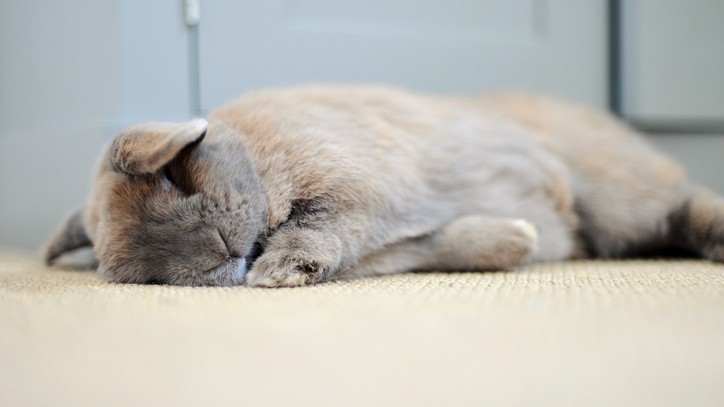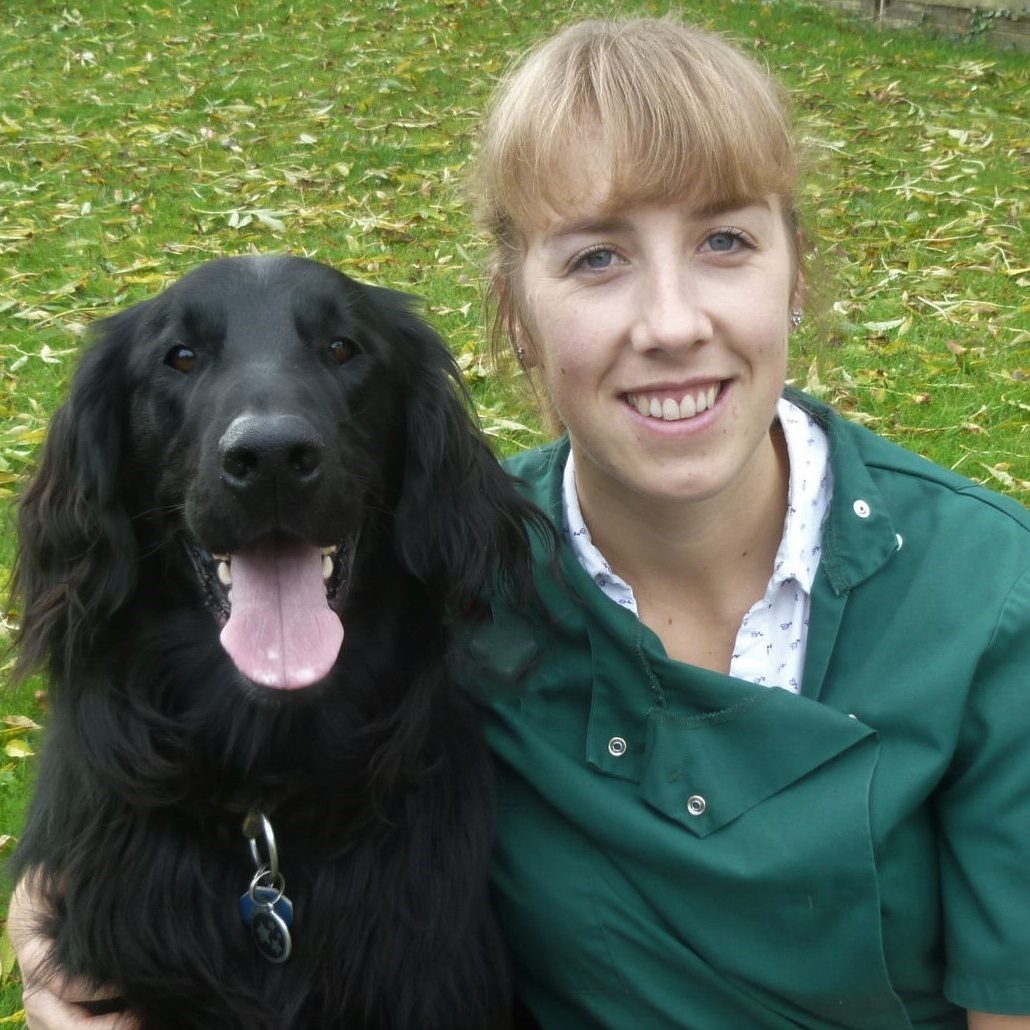Are rabbits nocturnal? Vet nurse explains what your bunny gets up to at night
Are rabbits nocturnal? Read on to find out what our experts had to say.

We know our floppy-eared friends like taking a nap or two during the day, so are rabbits nocturnal? While it’s a natural assumption to make if you see your bunny snoozing during daylight hours, it turns out your rabbit does catch up on their beauty sleep at night, too.
“Rabbits are not nocturnal; they are in fact crepuscular which means that they are most active at dawn and dusk,” explains Dr. Rebecca MacMillan. “Both wild rabbits and pet rabbits tend to follow this pattern of behavior.”
Although dawn and dusk tend to be the two periods of the day when rabbits are most active, this doesn’t mean they won’t zoom around the house at 2am and wake you up. That’s why we recommend investing in one of the best indoor rabbit hutches if you plan to keep your bunny inside — just make sure it’s big enough to give them plenty of room to run, hop, dig, and forage.
Below, vet nurse Claire Speight explains what rabbits get up to at night and whether you should let them out while you’re sleeping. Plus, Dr. Rebecca MacMillan goes into detail around how long rabbits sleep and when they’re most active.
Are rabbits nocturnal?
If you're learning how to care for a house rabbit or an outdoor-dwelling bunny, one of the first things you might be wondering is whether or not your new fluffy friend is nocturnal.
The term nocturnal refers to a pattern of behavior amongst some animals whereby they're active at night and sleep during the day. Examples of nocturnal animals include foxes, hedgehogs, owls and bats, which is why it's rare to spot these creatures during daylight hours.
Some rodents, like rats and hamsters, are also nocturnal, but as Dr. MacMillan explains, rabbits are not — which is good news if you've just welcomed a bunny into your family and would like to be able to spend some time with them!
Get the best advice, tips and top tech for your beloved Pets
"Rabbits are not nocturnal; they are in fact crepuscular which means that they are most active at dawn and dusk. Both wild rabbits and pet rabbits tend to follow this pattern of behavior."
How long do rabbits sleep?

Anxious to spend some time playing with your floppy-eared friend? If so, you may be wondering how much time they're going to spend sleeping. Thankfully, while rabbits do enjoy getting some shuteye, they're not the marathon sleepers that cats are.
"Rabbits sleep between 8-12 hours a day," says Dr. MacMillan. "Young rabbits will need more sleep than this to support their growth and development. They usually require 12-14 hours in a 24-hour period."
Most rabbits are light sleepers and tend to take mini naps throughout the day and night as opposed to sleeping in one long block of eight hours.
Are rabbits active at night?
If you have ever watched your rabbits at night, you will have seen that they spend a large amount of time sleeping, involving short naps, rather than long periods of time spent sleeping. This is a common sleeping pattern for prey animals, as when asleep they are at greater risk from a predator attack. Having a companion rabbit means that whilst one rabbit sleeps, the other can be on the lookout for potential dangers.
Rabbits will often sleep on their side, lying flat out when sleeping, which can worry some owners. This is totally normal and a sign they feel safe and happy. They will eat frequently, and must have constant access to fresh, clean hay which is scattered around their environment. Sitting and grooming a companion rabbit, and making frequent trips to their litter trays, are other activities that they perform at night.
During their most active time of the day, at dawn and dusk, they will often run, skip and jump around and perform ‘binky’ behaviour, whereby they run at full speed, leaping and twisting high in the air. This behaviour shows the rabbits are happy and feel safe in their environment and is their way of letting off steam.
What do house rabbits do at night?
Depending upon where your rabbits live in your house, their night-time antics may keep you awake!
Keeping rabbits indoors, much like dogs and cats are kept, is common, and rabbits can make wonderful household companions, as long as thought is given to how to care for them correctly.
They still require a large area to live in; at least the same as that recommended for outdoor rabbits, with lots of mental and physical stimulation, a diet mainly hay and grass based, and another neutered rabbit companion. When thinking about housing your rabbits indoors our top five tips for owners of indoor rabbit owners can help you decide if this is the right choice for you and your rabbits.
If your rabbits live close to where you sleep, they may wake you during the night, so this is a consideration you need to think about; some rabbits are noisier than others when moving around at night.
Should I let my bunny out at night?

When housing rabbits it is important to consider safety, as well as the environment offered.
Rabbits should have access to a large enclosure, which should measure a minimum of 3m x 2m x 1m high, 24 hours per day – including the night. As a minimum, the enclosure must allow them to take 3 consecutive hops, and must be secure, to prevent the rabbits from escaping, and predators from gaining access. The enclosure should allow the rabbits space to run, hop, dig, forage, explore and hide.
Shutting rabbits in hutches, or a smaller area at night, means they do not have the means to exercise and exhibit the natural behaviours that are important for their physical and mental health; during the winter months, when daylight hours are dramatically reduced, this means for a large proportion of their time they will be shut away. This compromises their welfare, which is why it is important their enclosure is safe and secure, day and night, and they have constant access to this area.
Allowing your rabbit to run loose in your garden is not safe; your garden may seem safe, but by the time you discover it isn’t, it is often too late. You may think that foxes, cats or birds of prey will not be able to gain access to your garden, but this is sadly untrue. Never leave your rabbits unattended in your garden, day or night, even if you believe it is 100% safe.
When are rabbits most active?
"Rabbits are most active in the dawn through until about mid-morning, and then again in the early evening through until late at night," says Dr. MacMillan.
"This pattern can suit many owners who enjoy spending time with their rabbits at either end of the day.
However, it may be more difficult for young children who need to go to bed just as their rabbit is becoming more active and playful."
Although rabbits are not nocturnal, they are still fairly active during the night, and perform behaviours which require ample space and enrichment. Their environment must not be restricted overnight, but must be safe so they cannot escape, and any potential predators cannot enter.
Looking for more great bunny content to help you care for your floppy-eared friend? Our vet explains how to cut rabbit nails (without hurting your bunny). Plus, here's how to litter box train a rabbit in five easy steps.

Rebecca is a vet surgeon who graduated from the Royal Veterinary College in 2009. She has a wealth of experience in first opinion small animal practice, having done a mixture of day-to-day routine work, on-call emergency duties and managerial roles over the years. She enjoys medicine in particular and she is proud to have recently achieved a BSAVA postgraduate certificate in small animal medicine (with commendation). She writes on various feline and canine topics, including behavior, nutrition, and health. Outside of work and writing she enjoys walking her own dog, spending time with her young family and baking!
Claire currently works in Kettering as a Head Nurse in a practice with a high rabbit caseload, as well as frequently lecturing and writing on rabbits to both veterinary professionals and owners.

